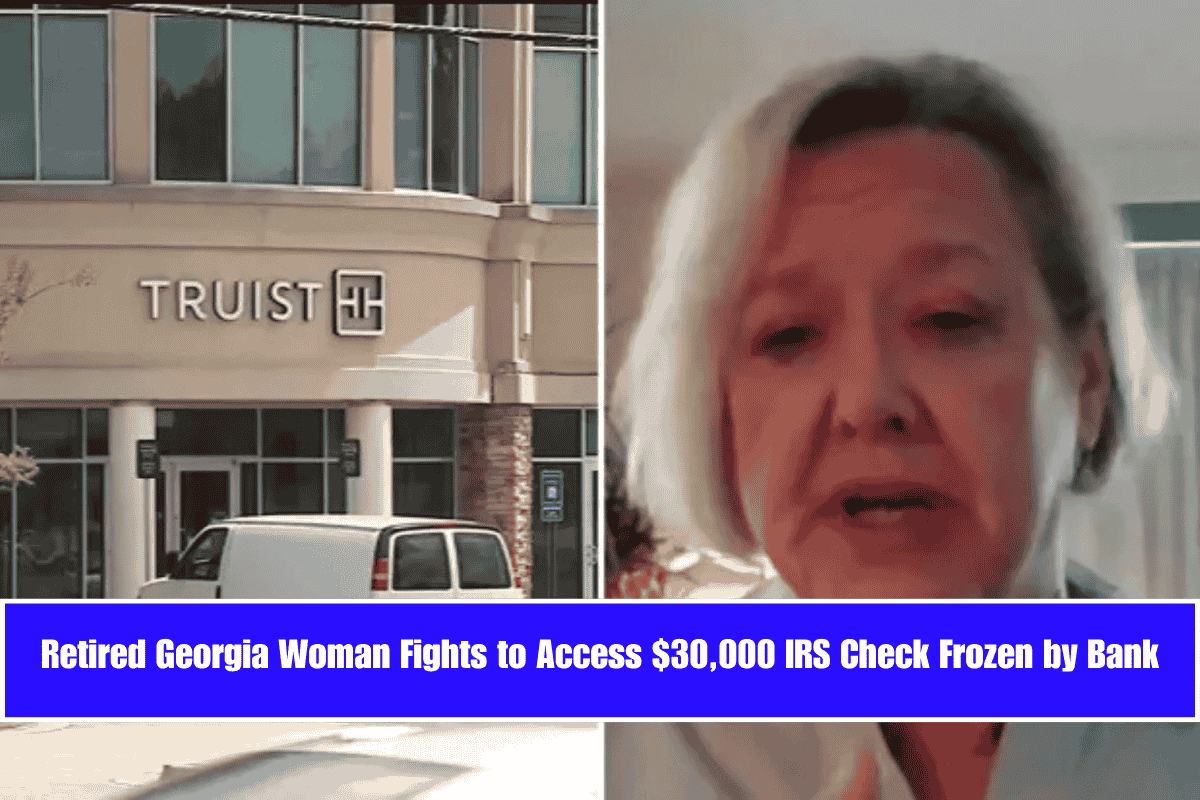A woman from Georgia is struggling to get her hands on a $30,000 IRS check that she deposited months ago. The money was meant to help pay off debts from the pandemic, but instead, her bank froze the account—and it still hasn’t been returned.
The story, reported by Atlanta’s WSB-TV, shows how banking issues can leave even rightful owners locked out of their own funds for long periods.
$30,000 IRS Check Deposited, Then Account Frozen
Kristine Knipp, a retired business owner from metro Atlanta, opened a business account with Truist Bank in November last year. She deposited a check worth $30,088—an IRS tax credit related to her former dance studio, which she had owned for 30 years before selling it during the pandemic.
Although the check was cleared and deposited, the account was soon frozen by the bank. Months later, Knipp still has no access to the money.
“Are You Going to Keep That Money Forever?”
Knipp shared her frustration with WSB-TV, saying she had written several letters to the bank, but received no useful response. Truist Bank told her that they had frozen the account until the validity of the check and ownership of the funds could be verified.
“I have plans for that money,” Knipp said. “I’m retired. I have things I need to do with it.”
She explained that the money was supposed to help her pay off bills from 2020, a tough year when she was running two businesses during the COVID-19 crisis.
What the Bank Said
Truist Bank, one of the largest banks in the US with $536 billion in assets, responded by saying they are “working diligently” to resolve the issue. However, Knipp has already filed complaints with both the Consumer Financial Protection Bureau (CFPB) and the Federal Deposit Insurance Corporation (FDIC)—but still hasn’t received the money or any refund from the IRS.
She’s Not Alone
Knipp isn’t the only one facing this issue. Another woman, Shelley Camp, deposited her IRS refund into an online bank account with Greendo, but the account was later locked due to a fraud alert. Camp told WSB-TV, “It’s a big mess.”
These cases are raising questions about how secure and reliable banks are when it comes to handling government-issued checks, especially during tax season.
Both Kristine Knipp and Shelley Camp did what any honest taxpayer would do—they deposited their IRS refunds into bank accounts. But instead of relief, they’ve faced stress and financial hardship. While banks claim they are working to sort out the problems, people like Knipp and Camp are left waiting, months after losing access to money that legally belongs to them. These stories are a reminder that even when you do everything right, things can still go wrong—and it’s important to follow up, file complaints, and seek help when banks don’t act fast enough.


















Leave a Reply